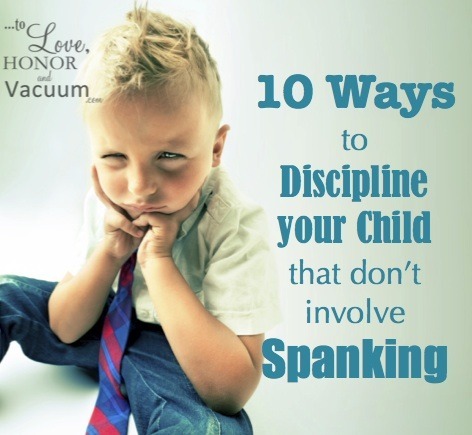Sheila Wray Gregoire's Blog, page 216
February 28, 2014
When Are You An Adult?
Every Friday my column appears in a bunch of papers in Ontario and Saskatchewan. This week let’s talk about what it means to be an adult. This week we’ve been talking about how to raise great kids, and my own daughters have chimed in with my 16-year-old explaining why she’s not dating in high school and my 19-year-old explaining why she didn’t rebel as a teen. I thought this was a good way to finish up the series.
 Canadians rejoiced loudly last week when we were victorious in Olympic hockey. Facebook was taken over for 48 hours by a constant barrage of “Way to Go, Canada!” while #WeAreWinter surged on Twitter.
Canadians rejoiced loudly last week when we were victorious in Olympic hockey. Facebook was taken over for 48 hours by a constant barrage of “Way to Go, Canada!” while #WeAreWinter surged on Twitter.
In the midst of the revelry, though, an American story about freestyle skiing halfpipe gold medalist David Wise caught my attention.
Wise is 23-years-old, and has been married for several years to his wife Alexandra. They have a two-year-old daughter together. NBC reported on his win like this: “David Wise’s alternative lifestyle leads to Olympic gold.”
Being married with a child in your early twenties is now an “alternative lifestyle”, and the statistics actually bear this out.
According to Stats Canada, the average age of first marriage in Canada is now 29 for women and 31 for men.
Even more telling to me, though, was that NBC also added this line: “At such a young age, Wise has the lifestyle of an adult.”
The lifestyle of an adult when you’re 23 and–how shall I put this?–an adult! The fact that we can be so surprised that a 23-year-old is behaving like an adult makes me a little sad.
I was married at 21; when I was 23 I was pregnant with my oldest daughter, who is now studying in second year at university. I raised my kids while I was in my mid-twenties, and still in great shape to lug babies and strollers up flights of stairs in the subway system in Toronto. When Keith and I were first married we started saving like crazy. We budgeted well and managed to scrounge together enough for a small downpayment on a house when we were in our late twenties. It wasn’t a large house, and back then neither of us had very well paying jobs. But we figured out how to stretch our money, and we made it work.
When we announced our engagement back in 1991, many were a little incredulous. How can we be so sure when we’re that young? You need to live more, see more of the world, try more things before you settle down! In fact, “settling down” was portrayed as something bad, as if life ends once you make a commitment. Yet for me, that was more when life began. In fact, happiness studies show that satisfaction comes not from living a carefree lifestyle, but instead from finding meaning and belonging while also feeling productive. Maybe younger people have trouble “finding themselves” because they’re looking in the wrong place.
I’m not arguing that people should get married younger; most people, after all, really aren’t ready.
But maybe that’s the root of the problem: we are raising people to not be “adults” until they reach thirty.
That’s become the culturally accepted norm.
Instead of the teen years being the decade in which you grow up, it’s now the twenties. Is that healthy for a society?
I always believed you were an adult at eighteen, but for that to happen an 18-year-old has to be ready to launch into the adult world. That means they have to know how to maintain a household, including knowing how to cook and clean. They have to know how to manage money. They have to be employable (or at least in school to become employable). They have to be responsible. And few 18-year-olds can accomplish all that unless we as parents start raising them to be adults earlier.
I’m not sure we’re doing favours by extending childhood until people are thirty. Perhaps we’d all be better off if we expected people to act like adults once they were, actually, adults.
Don’t miss a Reality Check! Sign up to receive it FREE in your inbox every week!

The post When Are You An Adult? appeared first on To Love, Honor and Vacuum.
Related posts:
A Spry Grandma
Adult Bullies and their Enablers





February 27, 2014
Why Do Teenagers Rebel? Thoughts from a 19-Year-Old Who Didn’t
“All kids will rebel, and my job as a parent is to be there to help catch them when they fall.”
I’ve heard Christian parents say that to me time and time again–strong Christian parents, too. But the Holy Spirit does not have an age limit. The Holy Spirit is with ALL Christians, young or old. And so if we can expect ourselves to act appropriately, we can certainly expect our teenagers to as well.
I’m a big believer in this philosophy, and I’ve written about these two different approaches to parenting before. This week, I thought I’d let other people speak about how to raise kids to make good decisions. We started on Monday about how to raise kids who won’t date too young, and then on Tuesday my 16-year-old chimed in telling us why she’s not dating in high school.
Today I’ve invited my 19-year-old to share her thoughts on why teenagers rebel. I said to her, “can you just write something explaining why you DIDN’T rebel?” She sent me this. It makes me tear up to read it.
Hello. My name is Rebecca Gregoire, and I was the perfect teenager.
Obviously I’m saying that as a joke, but by most standards, I truly was pretty perfect. I never drank, never smoked, never partied, never dated, never even swore. (Honestly. I didn’t swear until I was 18.) I may have been moody, but I always had a good job, and was extremely involved in church and volunteered in childcare and youth ministries. I didn’t rebel at all–I walked the straight and narrow all through high school, and am continuing to do so now that I’m living on my own.
I’m not saying all this to try and make myself look great–I’m saying it to make a point. I’m saying it to destroy a myth that has been hovering over Christian circles for way too long.
Teenagers do not have to rebel.
I am living, breathing proof of that statement. And so are the three girls I live with, and my best friends at our university IVCF group. We didn’t rebel.
Before I continue, let me tell you something else about myself.
I am not demure in any sense of the word. I don’t like listening to authority, and I often get frustrated when I’m told what to do, or how to do it. I like to question everything. I’m naturally extremely proud, a challenger of authority, and extremely stubborn.
Why am I telling you this? To prove that I’m not “naturally predispositioned to submit”. I’m actually the complete opposite.
Whether or not teenagers rebel isn’t contingent on their natural personality, and kids aren’t “guaranteed” to rebel.
My family had two children who were complete opposites, and neither of us had a rebellion stage. So it has to be something about the family, not our natural dispositions.
So why do teenagers rebel? And why do some teenagers never rebel? I’ve tried to pinpoint what kinds of things my parents did that helped my sister and me not rebel, and here’s what I’ve come up with:
5 Reasons I Didn’t Rebel as a Teenager
My parents instilled in me a sense of family honour
Often teenagers feel distant from their families, like they’re part of it by blood, but that’s it. In my family it was never like that. My mom and dad would make decisions on their own, of course, but they always talked everything over with my sister and me. Even things that we weren’t directly impacted by–we’d discuss everything over the dinner table.
My family is the kind of family where everyone is involved–it’s a team experience. A result of this is that I received a huge sense of family pride, dignity, and honour.
Family honour has been lost in our culture. We are so focused on ourselves, and have become extremely selfish. And I think a lot of that is that parents put their children’s wants over the family’s needs. In our family, Katie and I never went without. But we didn’t get everything we wanted–I wanted an X-Box when all my friends were getting one, but because that would cut out of major family time my parents said no. A small example, I know, but it shows the worldview my family had. No matter what, family comes first.
When your mindset shifts from “me” to “we”, your behaviours and your actions aren’t just going to affect you–you begin to see how what you do affects other people. What I do when I’m in my free time reflects on my family, whether good or bad. And for me, that was a huge incentive to be responsible and make my parents proud.
My parents were extremely encouraging, but also demanding
There needs to be a middle ground. I cannot stress this enough.
So many parents I see are all about the encouragement. Their kids can’t do any wrong in their eyes, and they just constantly pour love and affection and butterflies and rainbows into their children’s life. And then other parents are the opposite–they don’t pay any attention to their kids unless they do something wrong and then they blow up. Or, even if they don’t explode in anger, they only ever criticize and never praise their children.
My parents had a happy medium. We weren’t coddled, but we weren’t picked on, either. My parents chose their battles, and also encouraged us when encouragement was necessary but didn’t lie and tell us we were great at something when we weren’t. For instance, my parents never would have told me that I should go for a career in gymnastics, because I am not flexible in the least.
We always knew where our parents stood, and through that, we always knew that they were honest and had a better understanding of who we were.
My family talks about everything
Open communication was big in our family. My mom and dad always made sure not only that they had time to talk to us, but that they had a specific time and place to do it, too. When I was younger, we talked before or after reading bedtime stories, or at the dinner table when we were eating together. When we got older, that spot moved to the hot tub we had in our backyard and car trips to and from the grocery store, friends’ houses, etc.
The biggest part, though, was that we didn’t just talk about school, work, and the like. We talked about whatever was going on in our lives–whether I was thinking about a new blog post idea, how Katie was doing with her skating, or what movie we really wanted to see–anything that came to mind. Our parents became our confidants, and that built a level of trust.
Moreover, our parents shared things with us, too. Now, don’t get me wrong, there is definitely a line here. But in our family, my parents simply humanized themselves to us. My dad would tell us about his favourite movies growing up, my mom would ask our opinions on knitting patterns. She’d even tell me when she had angst over commenters on this blog!
This built a partnership between us. A partnership where one was the parent and one was the child, of course, but nonetheless, a relationship where the actions of one person directly affected the other. Because of that relationship, I never felt like I needed to rebel to be heard, to be understood, or to get my way. I knew that if my parents said no, it was for a reason.
We were never expected to rebel as teenagers
My parents never encouraged any idea of teenage-hood rebellion. They never joked about us rolling our eyes, acting exasperated, or having attitude at all. Rather, they actually made us think that teenagers and the whole rebellion process was stupid and unnecessary. I always figured that I would grow up straight from child to adult, with no “silly teenage stage” in-between. You may think that this is no fun, or that kids need their time to be silly and make mistakes.
But what kind of message does that send the teenager? If kids expect that when they hit 13 they’ll start wanting to go to parties, or go out with boys, or watch inappropriate movies, then they will grow up to fulfill those expectations. On the contrary, if they are raised to believe that those are all optional, and actually unnecessary and somewhat frivolous, they won’t want to disappoint or seem silly, and so are more likely to make positive choices and act like an adult. This doesn’t mean that we miss out on a childhood, or miss out on teenage years–it just means that we use them for training for adulthood, and have fewer regrets when we’re through it all.
Also in this category is that we had very few rules. My parents never needed them, because they didn’t expect us to break them. When parents have a lot of rules it always seems to me like they’re trying to control their kids, and if you have to control them, you’ve lost the battle already. My parents always assumed we’d pick up on their values and make good decisions. Through our close relationship, heart-to-heart talks, and–when necessary–confrontations, we learned their expectations, they learned our points of view, and our family worked together instead of parents trying to reign in their children. Now, I only think this worked because we grew up in such a structured, close, and trust-filled family, but that was a big thing for me. I never felt stifled, so I never felt a need to rebel.
God was centre in our home
Our home never revolved around work, sports, school, or activities. It didn’t even revolve around other people–it always hinged on God and his plan for our family. Growing up in that kind of an environment shaped my view of my actions, choices, and the effect I had on others. When you’re used to basing everything on God’s will and God’s plan, suddenly the parties don’t seem as important. It isn’t as tempting to lie about who you’re hanging out with. Smoking, drinking, and the like just doesn’t really have any appeal, because they don’t help with your ultimate goal–to become a person God will use for great things.
So many times I see families who drop everything for good grades, or who don’t go to church if it’s a busy week at work, or who choose extracurricular activities over youth group and the like. My family, however, was the opposite. If we were tired, too bad. Get in the car, we’re going to church, because that’s what God’s called us to. If Mom and Dad had a hard time with work, we went to church because that’s a place of rest. If I was struggling with school and needed the day to study I didn’t have that choice, because it was my decision not to study earlier.
God came first in everything. And my choices were shaped because of that worldview.
I honestly don’t think there’s any one way to make sure your children don’t rebel. Every child is different, and every family contains unique people. But all I know is that for me, this worked. In my family, the trust, communication, and centrality of God in our home made my teenage years one of partnership with my parents rather than a constant battle.
So don’t give up hope–the teenage years don’t have to be war!
Like this? Think it might encourage other parents? Please share on Facebook or Pin it! Just use the buttons below.
You can find Rebecca at her blog, Life as a Dare, where she writes about her quest to simplify faith, relationships, and life in general.
If you’re wondering how to foster a relationship like this with your kids, what Rebecca writes about sounds a lot like what Barrett Johnson is teaching us in his book the Talk(s) ! He really emphasizes keeping open communication with your kids. It’s the best book I’ve read about how to talk to your kids about sex, dating, and relationships, and it’s my store here! Or you can order it in paperback here.
This post contains affiliate links.
The post Why Do Teenagers Rebel? Thoughts from a 19-Year-Old Who Didn’t appeared first on To Love, Honor and Vacuum.
Related posts:
A 16-Year-Old Explains, “Why I’m Not Dating in High School”
Thoughts on My Baby Growing Up
On Teenagers, Facebook Assaults, and Pornography





February 26, 2014
Wifey Wednesday: Are You Modelling a Good Marriage for Your Kids?
It’s Wednesday, when we talk marriage! I introduce a topic, and then you all can comment or link up a marriage post of your own in the linky below! Today I want to talk about something near and dear to my heart: Are you modeling a good marriage for your kids?
We’ve been talking this week about raising kids to make good decisions. On Monday we talked about how to help kids understand it’s better to wait to date, and yesterday my 16-year-old shared her thoughts on why she’s not dating in high school. Tomorrow my 19-year-old will chime in on why not all teens rebel.
But all of this really comes down to the relationships that you model with your kids. It’s great to teach them things, but it’s so much better to show them. When you model a great marriage, they will want to have what you have. They’re far less likely to look for shortcuts.
Now modeling a great marriage means that you have to actually have a good marriage! You can’t just fake it. But remember that a good marriage is not a perfect marriage. It’s okay if kids see that you’re still working some things through, as long as they also see that you’re doing it in a healthy way. And what is it that you want kids to see?
You’re Affectionate Towards Each Other
Kids need to know you actually like each other! It’s so important for them to see you physically touch. It helps them understand more about sexuality, and it helps them feel secure, that your marriage is okay. The majority of women who write to me who have sexual issues in their marriage will say something like, “In our house sex was never talked about and I never saw my mom or dad touch or kiss each other.” It was something that was so distant that it felt like it was wrong.
Affection is a wonderful thing. Now some of us are huggers and some of us aren’t. Some of us can easily give our husband a quick kiss in front of people and some of us would be mortified. Obviously we all have different comfort levels. But I do think it’s very important, even if you’re not a touchy person, to let your kids see you hold hands. Let them see you caress his shoulder or put your hand on his leg when he’s driving. Let them see you put your head on his shoulder if you’re sitting on the couch together. Even let them see you kiss! It helps them feel really secure, but perhaps more importantly, it helps them see that marriage is fun! If the only people they ever see being affectionate are those who aren’t married, what are they going to learn? Marriage is where love goes to die.
You Fight But You Resolve Conflict
Keith and I have had our share of fights in front of the kids. We’ve snapped at each other. I’ve retreated into silence or short answers at times. I’m not proud of those moments, but they happen. And we’ve always tried to make sure that if they see us mad, they also see us apologizing and working it out.
Often when parents are mad they say nothing because they don’t want the kids to know. But kids sense the tension and they sense the silence, even if you haven’t said anything to them. And when kids know there’s trouble, but they don’t know what that trouble is, they often assume it’s worse than it is.
I’m not advocating yelling in front of the kids, or calling names, or airing all your dirty laundry. But if something happens right then and there, and you start snapping, kids see it. That’s not wonderful. But what is wonderful is if they can also see you resolve it.
Everybody has tension; if you can show them how to get around that tension, how to apologize, and how to forgive and move on you will have taught them something really important indeed.
Bonus points if you can also let them see you praying together, especially about problems. If you get angry and apologize, and then you take each other hands and say a quick prayer of repentance and blessing on the other person, that speaks volumes. I know not everyone who reads this blog is a Christian, but I can’t stress the importance enough of modeling a strong spiritual life and faith to your kids.
You Listen to Each Other’s Opinions
Kids need to see that marriage is a partnership where you respect each other, and where you honour each other by checking in before you make a decision. If your child asks for something like a cell phone, you listen to their reasons and talk to them about it, and then say, “let me check with Daddy and we’ll talk to you together.”
If you’re trying to make up your mind about whether to switch jobs or whether to sign the kids up for sports, they need to see that you consult your husband and that you make that decision together.
And likewise, before he does something big, they should see him talk to you.
We know a couple who genuinely love each other, but where the mom is often exasperated because the dad does things on a whim. He arrives home one day and announces, “I bought a cottage.” And soon it was, “I bought a boat.” Now, they had the money, so this didn’t endanger their financial position, but that was a big decision for him to make that affected the whole family. And she was not pleased.
Talk to each other about big decisions. And the best way to do that is just to check in with each other everyday. Have one time of day when you always talk–maybe you sit on the couch for 15 minutes before dinner to catch up. Maybe you have a cup of tea after dinner and catch up. Maybe you take a walk after dinner together. Do it regularly, and let the kids see it. And if you are talking like this and sharing what’s on your mind, it’s far less likely that one of you will make a major decision without consulting the spouse!
You Praise Each Other and Say Good Things About Each Other
When I empty the dishwasher I get on the phone. I don’t like doing just one thing, so that’s often my time to phone my best friend, or my mom, and talk.
But here’s the thing about being on the phone: kids hear you. Even when you’re not talking to them. So when your kids hear you talk about your husband, what do they hear you say? Do you complain, or do you build him up? Yes, we all need times to talk to a trusted mentor about problems, but those should be the exceptions, and they should be private conversations. In general, let your children hear you saying good things about their dad and honouring him.
And let them hear you praise him, too! When we eat dinner together, Keith always says, “That was an amazing dinner, Sheila.” My daughter rolls her eyes, because he’s so predictable, but he means it, and she hears it. I make it a point of praising my husband in front of our kids, too. Let your kids hear you say nice things about each other!
You Take an Interest in their Interests–You Have One Whole Life, not Two Separate Lives
Do your kids see you do things together? Or do they see you sitting on separate screens at night and living separate lives? Many couples live as roommates, not as lovers, or even best friends. Find things to do together! Let your kids see that you know how to keep love alive and that you genuinely have interests you enjoy. When they see that marriage is something that is fun, where you have a constant companion, it makes marriage look very attractive.
You Have Sex
The most mortifying thing many parents can imagine is the teenagers catching you having sex.
But honestly, that’s not really that bad. Sure, it’s uncomfortable, but secretly your kids want to know that you still have fun and you still want to be with each other–though they’d rather not hear any specifics.
I think we err too much on the side of “we can never do anything whatsoever at all if there’s a chance they’ll know what we’re doing”, and not enough on the side of, “it’s our house, and if they don’t want to hear it, they can go to their rooms and shut the door.” It’s a great comfort to kids to know that their parents still have fun, even if they don’t want to picture it.
If you’re affectionate; if you praise each other; if you resolve conflict; if you have fun with each other, what will you be teaching your kids? You’ll be showing them, marriage is fun! Marriage is worth it. Marriage is work, but it’s wonderful having someone who loves you.
So don’t worry too much about keeping absolutely everything private. Let them see you living out your marriage, because one day, you want them to start living out a good marriage of their own, too.
I can think of a ton of other things to add to the list–showing a united front; complimenting each other; praying together; worshiping together. But I didn’t want the list to become too long! So talk to your husband about these points, and ask: are we modeling these things to the kids? Or are we trying to keep too many things behind closed doors? Now pick ONE aspect that you really want to be deliberate about modeling to your children. And then do it together!
Now, what advice do you have for us today? Link up a marriage post in the linky below! Each week I try to feature two Wifey Wednesday contributions on my Facebook Page. That doesn’t mean I didn’t like yours if I didn’t feature it; I try to feature posts that fit in well with what I’ve been talking about lately. And I try to feature different bloggers! So keep linking up, and maybe I’ll send you a ton of traffic this week!

Marriage isn't supposed to be blah!
Sex is supposed to be stupendous--physically, emotionally, AND spiritually.
If it's not, get The Good Girl's Guide to Great Sex--and find out what you've been missing.

The post Wifey Wednesday: Are You Modelling a Good Marriage for Your Kids? appeared first on To Love, Honor and Vacuum.
Related posts:
Wifey Wednesday: 3 Reasons Sex Matters in Your Marriage (Especially if you are still parenting kids!)
Wifey Wednesday: Keeping Your Marriage Strong (After Kids)
Wifey Wednesday: Bad Marriage Advice





February 25, 2014
A 16-Year-Old Explains, “Why I’m Not Dating in High School”
 Will ALL kids date in high school? Will ALL kids automatically have sex, get their hearts broken, or do things they regret afterwards?
Will ALL kids date in high school? Will ALL kids automatically have sex, get their hearts broken, or do things they regret afterwards?
No, I don’t think so at all. And it makes me sad when I hear parents say,
“well, I know they’re going to mess up, because all kids do.”
I’m in the middle of a week where we’re talking about how to encourage your kids to do the right thing and make good decisions. It all started when I saw some commenters on some old posts saying things like, “The quickest way to make your child do something is to tell them not to,” and then explain why they don’t expect their teens to do the right thing.
That made me sad, as it sounds so horribly defeatist.
But rather than arguing my self, I thought I’d let my daughters do it for me! On Thursday my 19-year-old will tell us why she believes she didn’t rebel–and why kids don’t necessarily rebel. Today I’m going to let my 16-year-old explain why she’s not dating in high school. These are her words, not mine, and her arguments, not mine. I show you just to encourage you that it IS possible to raise a teen who won’t want to date, and to tell those of you, especially those with younger kids, to encourage a super close relationship with your kids, teach them to love God, and then EXPECT them to do the right thing.
Here’s Katie:
Wondering how you can encourage your child to think like this? Barrett Johnson, who guest posted yesterday, has a great new book out about having the Talk(s) with your kids! It’s the best book I’ve read about how to talk to your kids about sex, dating, and relationships, and it’s my store here! Or you can order it in paperback here.
I know Katie would appreciate her video being shared as much as possible! So please hit the Facebook Share buttons and Pinterest buttons below!

The post A 16-Year-Old Explains, “Why I’m Not Dating in High School” appeared first on To Love, Honor and Vacuum.
Related posts:
Helping our Kids Succeed in School this Year
Teens, Dating, And Courtship





February 24, 2014
Reader Question: When Should You Allow Your Teenager to Date?
Every Monday I post a Reader Question and take a stab at answering it. This week, though, we’re going to do something a little bit different. We’re going to take a whole week to answer this question:
How do you raise teens who will make good decisions?
Lately I’ve been noticing a bit of a disturbing trend in some of the comments on older posts. Whenever I talk about setting limits for teenagers, especially when it comes to dating, someone invariably comments with something like this:
The quickest way to make sure a teenager does something is to tell them they can’t. To me, maintaining a good relationship with my daughter is the most important thing to me, so we haven’t told her she can’t do things. We just trust her, and we’re there for her, because as parents, that’s all you can do.
I find that a very defeatist attitude. And so I’ve been thinking and wrestling with how to tackle it, and here’s what I’ve decided.
Today: I’ve asked Barrett Johnson, the author of the amazing book The Talk(S) (about having continuing talks with your kids), to share about when you should allow your teen to date.
Tuesday: Rather than talk myself about teens and dating (since I’ve done that already), I’ve asked my 16-year-old daughter to join us on the blog and guest post.
Wednesday: I’m jumping in to talk about how to model a good relationship with your kids.
Thursday: I’ll wrap up the series by asking my oldest daughter, who is now 19, to write about why it is that she never rebelled.
I think hearing from my daughters on this one is likely better than hearing from me!
This is going to be our “You can do it, parents!” week. You CAN have a great relationship with your kids. Your kids WON’T automatically mess up. It is possible to raise kids who won’t date too young. And so today we’re going to ask the question, “when should you allow your teenager to date?”
Here’s Barrett Johnson, author of the AMAZING book The Talk(s), guest posting. I read an early version of his book, which is all about having ongoing talks with your kids as they grow so that you can steer them in the right direction when it comes to relationships. He explains it so well, and really helps to empower parents!
 “If everyone jumped off a cliff, would you do it, too?”
“If everyone jumped off a cliff, would you do it, too?”
Every parent has used some form of that line before. I’m not sure it has ever worked to change anyone’s behavior, but we use it anyway. It’s our attempt to convince our kids that what our world practices as normal behavior is often severely skewed and even badly broken.
I believe this definitely applies to typical teen dating habits. With clear evidence found in the horrific divorce rate and with rampant sexual sin in both married adults and young people, we cannot assume that our current western system is working. Wise parents will both realize this and then be deliberate to equip their kids accordingly.
There is not a clear directive of exactly what that looks like for each particular family. Instead of looking for that ever-elusive formula, it is our responsibility as parents to prayerfully seek God’s leadership regarding how it will look in each of our unique situations.
That is why I don’t think it is wise for parents to give their kids a set age (as in “wait until you are sixteen”) when they can begin dating.
A strict line like that is full of potential disastrous complications. Telling a boy who is 15 years and 11 months old that he cannot have a girlfriend and then a month later telling him he can (and giving him keys to the car) is too much freedom preceded by too little practice. Not much good will come of that.
While there may not be a firm recommended age where every teenager should be given the green light to begin dating, one study clearly makes the argument that it is wise to put it off as long as possible. This is especially if we desire to help our kids to remain sexually pure leading into marriage. A number of years ago, USA Today reported the shocking correlation between the age that dating begins and the percentage of those who had sex before graduation. Here’s what they found…
When Teens Date Young it has Repercussions
 The takeaway: we are free to encourage our 6th or 7th grade sons to have girlfriends and to let them “date” within the context of our homes. We have every right to drive our 13 year-old daughters to the movies with their “boyfriends.” It seems innocent enough, but don’t be naïve about this research. We can assume that this won’t happen to our kids, but the evidence strongly suggests that the earlier a kid starts dating, the more likely he or she is to become sexually active. Blindly sticking our heads in the sand and insisting that our kids are different and that they will somehow beat the odds is irresponsible in light of the data.
The takeaway: we are free to encourage our 6th or 7th grade sons to have girlfriends and to let them “date” within the context of our homes. We have every right to drive our 13 year-old daughters to the movies with their “boyfriends.” It seems innocent enough, but don’t be naïve about this research. We can assume that this won’t happen to our kids, but the evidence strongly suggests that the earlier a kid starts dating, the more likely he or she is to become sexually active. Blindly sticking our heads in the sand and insisting that our kids are different and that they will somehow beat the odds is irresponsible in light of the data.
You’re going to have to tell you kids that they may not be allowed to date until well after many of their peers. Beginning these discussions when your kids are far away from any interest in the opposite sex is ideal. For here is the mistake that most parents make: they do not start setting parameters on dating until their kids start exploring their first relationship. If a young teen is already there and her parents start dropping rules on her for the first time, it may get ugly.
Think about Your Guidelines for Teen Dating Early
For this reason alone, it is not a bad idea for you to begin considering guidelines for dating while your kids are still in diapers. If you don’t begin to show them at a very early age what will be normal in your home, they are likely to assume that their “rules of engagement” are identical to everybody else’s.
If you haven’t told them any different, why wouldn’t they think that?
Barrett Johnson is the husband to Jenifer and the father of five great kids (including four adolescents). He serves as the Family Minister at Johnson Ferry Baptist Church outside of Atlanta and his blog, INFO for Families, gets more than 40,000 hits a month. He has just released his first book, “The Talk(s): A Parent’s Guide to Critical Conversations About Sex, Dating, and Other Unmentionables.” It has been created to help every parent to equip their kids to make wise choices in a sexually-charged culture. Find out more at www.infoforfamilies.com. Get the ebook here, or the paperback here.
Tune in tomorrow for the second in our series, when my 16-year-old daughter makes a stab at answering the question herself!

The post Reader Question: When Should You Allow Your Teenager to Date? appeared first on To Love, Honor and Vacuum.
Related posts:
7 Steps to Raising a Teen Who Won’t Date Too Young
I Kissed Dating GoodBye





February 23, 2014
What a Difference a Light Makes! With IKEA Brighter Lives

What would it be like to live without lights?
IKEA asked me to be part of a campaign to raise awareness for their Brighter Lives initiative, where they supply refugee camps in Jordan, Ethiopia, Chad, and Bangladesh with solar street lamps and solar lanterns to help refugees achieve a little bit of normalcy and to greatly improve safety.
They sent us a solar lantern so we could try it out! It’s kinda nifty. You leave it out in the sun all day, and then at night it provides about 6-8 hours of light. Now, here in Canada we don’t get a whole lot of sun this time of year, so it doesn’t charge that well. But one thing those refugee camps have in abundance is sunlight during the day!
We tried first to go without lights, and then we use the solar lantern. And here’s what a difference it makes!
1. It’s scary with no lights
Seriously. We’ve been painting our house for the last few weeks, so we have stuff everywhere. Books line the floor because we haven’t put the bookcases back up yet. And walking around when you’re not sure what’s there isn’t fun.
Try going to the bathroom in the middle of the night, or even brushing your teeth, with absolutely no light. It’s not easy.
And add to the scary factor is the sense of physical danger in the camps. Rape is a huge problem, and as the mother of teenage girls, that is just hard to even imagine. What would you do if you were 16 and you had to go use the latrine, but it was pitch black? Do you hold it all night and not really sleep, or do you brave the danger? Not a nice choice to make.
Even one solar lantern that you can carry with you helps so much. You can see the books on the floor (or the snakes, or the obstacles, or whatever else there is!) You can see where your toothbrush and toothpaste are.
And in a camp, if you’ve got a light, you’re far less likely to be attacked because people can see what’s going on.
2. It’s boring with no lights
It’s easy to romanticize it–wouldn’t it be nice if we weren’t addicted to technology and could get back to basics? Wouldn’t it be wonderful to have time to talk as a family, instead of just watching screens all night?
There certainly is something to that. But at the same time, there’s a reason light became so popular. It’s more fun to talk to people and socialize when you can see them!
When my mom visited a refugee camp in Kenya, she came home saying that one thing that struck her was how bored everybody was. There just wasn’t a whole lot to do. These people were used to having regular lives, with things to fill their days with. And now there was very little. Add to that no lights at night, and the day can seem endless. People just tend to start sleeping twelve or thirteen hours a day, and getting really depressed.
In countries near the equator the sun sets at 6:30 every night and rises at 6:30 every morning, all year long. It’s not like North America when summer nights are so short, and summer days are so long. The sun is gone by 6:30, year round. That’s a lot of hours to fill in the pitch dark.
When we were in the dark all we could do was talk. It was actually nice. But we were doing it for one night, not for endless nights, stretched before you. There’s so much human potential in these camps–people who want to teach, and help kids with homework, and try to maintain a semblance of normal life. Give them lights, and they can start to build a vibrant community while they’re waiting for their lives to move forward.
Imagine the lost productivity in these camps! They’ll always be difficult places to live, but at least with light you can maintain a semblance of normal life. Here’s my daughter at the table, finding that the solar lamp, in complete darkness, really is enough to read by and do your homework by:
Light makes a difference. I appreciate what IKEA is doing for refugees, and I’d ask you to help, too! From now until
March 29, the global IKEA store initiative will donate one euro ($1.37)* to the UN refugee agency UNHCR for every IKEA LEDARE – LED light bulb sold. So if you’re planning on doing some shopping at Ikea, why not do it now? And buy some light bulbs while you’re at it!
I was selected for this opportunity as a member of Clever Girls Collective and the content and opinions expressed here are all my own.
The post What a Difference a Light Makes! With IKEA Brighter Lives appeared first on To Love, Honor and Vacuum.
Related posts:
IKEA’s Helping Refugees–with their Brighter Lives for Refugees Program
Difference Between Discipline and Dedication
Reader Question of the Week: How Has God Made a Difference in Your Marriage?





February 21, 2014
On Those Who Deserve Fame
Every Friday my column appears in a bunch of papers in Ontario and Saskatchewan. This week I wanted to address what it means to be a True Hero.
 I recently served on a committee looking for leadership for a nonprofit organization, and we joked that one of our criteria was that the people we would ask would not want to do it. People who don’t want the spotlight often end up being better leaders.
I recently served on a committee looking for leadership for a nonprofit organization, and we joked that one of our criteria was that the people we would ask would not want to do it. People who don’t want the spotlight often end up being better leaders.
People who crave attention usually don’t deserve it.
I was reminded of this when I read the story of Nicholas Winton. Winton grew up in a British Jewish family that later converted to Christianity. In 1938 he decided to forego a ski holiday in Switzerland to go to Prague to help a friend who was involved with Jewish refugee work.
After Kristallnacht, when the Nazis started overt persecution of the Jews, Winton single-handedly set up an aid organization to transport Czechoslavakian Jewish children to Britain, arranging for families to look after them once they arrived.
Most of those children’s parents later perished in Auschwitz, but 669 children made it to Britain. Tragically, the last train that was scheduled to leave, full of 250 little ones, never made it. Those children were sent to Auschwitz instead.
Winton had to contend with physical danger in Czechoslavakia, red tape in Britain, and trouble in the Netherlands to get the kids to safety, but he persevered with no resources except his own determination.
What hit me most about his story, though, other than the amazing heroism, was the fact that he never told anybody.
In 1988, his wife Grete was rooting through the attic when she came across his famous ledger where he had taken painstaking notes about the identity and whereabouts of all of the children. She went public and he has since been honoured by the British government, the Czechoslavakian government, and the Israeli government. He was even touchingly reunited on a television documentary with dozens of the children that he rescued.
At 104 years of age Winton has outlived many of the children that he saved. And yet he never desired fame or recognition. He did it because he felt compelled to. He couldn’t NOT do it.
I wonder, though, if one of the reasons he couldn’t come forward was that even though he saved 669, the 250 who didn’t make it still haunted him. I remember the end of Schindler’s List, when Oskar Schindler was overwhelmed with the thought that if he had just sold a few more possessions he could have saved dozens more. Or there is Charles Mulli, a Kenyan who opened a children’s home initially for a dozen children, and now cares for more than 3000. When he goes into the slums, though, he’s still overwhelmed by the need.
Real heroes don’t look for fame, because real heroes pay the price. It’s not a game about fame or fortune; it’s a real life struggle to do what’s right, to stand up to evil, to make a real difference in the midst of heartbreaking circumstances. It means opening yourself up to true tragedy. That is never easy.
Winton was and is a real hero, and his story deserves to be told, far more than whether or not Jennifer Aniston is pregnant or whether or not another Kardashian is getting a divorce.
The things that our culture cares about are a measure of that culture. We are a petty culture, and yet amongst us there are still calm, quiet giants. It behooves us to wade through all of our silly noise and take time listen to their very important stories.
Don’t miss a Reality Check! Sign up to receive it FREE in your inbox every week!
UPDATE: I made an error in the original version of this column and said that he rescued the children from Austria. It was really Czechoslavakia. I’m sorry for the mistake; I’ve corrected it now.
The post On Those Who Deserve Fame appeared first on To Love, Honor and Vacuum.
Related posts:
The Good, the Noble, and the Heroic
Stories That Must Be Told
Imagine Handing Over Your Child to a Stranger to Save His Life…





February 20, 2014
The BEST Things About Being an ENTJ Blogger
 According to the Myers Briggs Type Indicator (MBTI), a personality test that divides you into 16 possible types, I’m an ENTJ, which is quite rare for a female. I explain what those letters mean here, in the first post I wrote about being an ENTJ.
According to the Myers Briggs Type Indicator (MBTI), a personality test that divides you into 16 possible types, I’m an ENTJ, which is quite rare for a female. I explain what those letters mean here, in the first post I wrote about being an ENTJ.
A bunch of you really liked the personality posts, so I’m planning a series of them coming up looking at personality differences in marriage–and I may get my mom, who is a certified MBTI trainer, to help me with that, too!
But in the meantime, I thought I’d let you in a little bit more into my brain as an ENTJ Blogger.
I’m an ENTJ, which means;
E- I’m an Extrovert, not an Introvert. I process things by talking about them, and I rejuvenate by being with people.
N – I’m iNtuitive, not Perceiving, which means I like ideas and the big picture, not details. I figure stuff out not by examining the little parts but by thinking about it.
T- I’m a Thinker, not a Feeler. I value logic, and make decisions based on what I think is right. I don’t tend to focus on others’ feelings quite as much.
J – I’m Judging, not Perceiving. I like being organized. I like plans. I like lists. I like to make decisions quickly with the evidence in front of me. I’m not a go with the flow person.
If you were to sum up an ENTJ in a nice way, you’d say that we were the Executives, the CEOs, the Leaders. If you were mean, you could say that we were obnoxiously bossy. Both are likely true.
I wrote about the downsides of being an ENTJ in a previous post, but I thought here I’d tell you about the upsides, because it’s really in the upsides that I’ve figured out my purpose for blogging, and how to fit my passion, gifts, and bent into the ministry that God’s given me.
1. The ENTJ Blogger isn’t Afraid to Say The Emperor Has No Clothes
We value logic and we value big ideas, so if something doesn’t look right to us, we’re not afraid to say it. We’re not really loyal foot soldiers. We question everything. So just because something has always been done a certain way doesn’t mean that we’ll endorse it. If it makes no sense to us, we’ll say so.
I think that’s especially valuable in the Christian community, because we have a lot of “sacred cows” that you’re not supposed to question. An example would be the idea of submission. We often think that this means that a wife can’t bring up problems. That, however, makes no sense to me, because that’s no way to build unity in marriage, and goes against everything else in the Bible when it talks about resolving conflict.
I just signed a book deal where I’m going to mention a lot of these sacred cows, and I’m so excited about it! It’s based on my 7 Thoughts That Can Change Your Marriage, but it’s going to go a lot further, and include a lot about how to really handle conflict. Sometimes we all need another set of eyes on a problem to ask, “is the way we’re handling this really the best way?”
2. The ENTJ Blogger is Highly Practical
I used to read a lot of blogs with huge readerships where there were pretty graphics quoting Bible verses and all kinds of wonderful words that were so compassionate to those who were hurting.
And I would try to do that and fail miserably.
I’m a T, not an F. I live by logic, not by feeling. In the Bible, I wouldn’t be the Asaph writing lovely Psalms; I’d be Elijah calling down rain from heaven. It’s not that I don’t believe that God can comfort you; it’s just that that’s not who I am. I figure the best way to comfort someone is to help them figure out what to do next.
Don’t get me wrong; I’m very glad those other blogs are there, because we all need encouragement, and that is the voice that God has given them. But I’m about the Practical. And I think sometimes that’s sorely lacking from a lot of women’s blogs.
3. The ENTJ Blogger is All About Fixing Problems
Our main goal in life is to get the world to run more smoothly. We’re never satisfied with the status quo; we figure there’s always a way to do it better! So even if it’s been done this way for generations, we figure there must be some tweak, some little thing, that we can do to make things work better.
That’s really why I started writing. It was 1997 and I was living in downtown Toronto with my two babies. We went to playgroup everyday just to get out of our small apartment. And at this playgroup were a whole bunch of moms, most of whom had difficult marriages.
I was especially close to one mom who was always miserable. Her husband really didn’t treat her well. He would come home from work and not talk to the kids. He’d just sit on the couch and expect his wife to bring him dinner. He didn’t eat with the family. He didn’t do any housework. He’d go out with his buddies but he’d never watch the kids so she could go out. He gave her no access to money but made her ask for a $20 every time she needed a few groceries.
And I’d listen to all these stories she’d tell, and I’d have a million things running through my head–why don’t you just do X? Why don’t you do Y? I could see so many ways she could change her own behaviour and improve the situation. I’d try to mention one or two at a time, but unfortunately she could never follow-through.
But as she was going through this, so was another woman in my extended family. Almost identical stories. And they both ended up having their marriages end. I thought: maybe if women just understood better how to change the dynamic in the marriage, then these marriages could be saved! And so I wrote To Love, Honor and Vacuum (the book). P.S.: The second edition is coming out in the spring!
I know many people will just say, “give it to God and pray.” I’ve always figured that if we’re going to pray, God also wants us to engage in something. So if we want God to work, we need to be prepared to act differently, too. We have to sacrifice as well. And so I try to be the solutions girl.
My wonderful friend Fawn Weaver, who just wrote the already bestselling Happy Wives Club, has a great blog encouraging women to have happy marriages. I love Fawn, and I guest post there occasionally.
But that’s just not who I am. I’m in the solutions business, not the encouragement business.
That’s because to me, real encouragement has solutions. And so I want to encourage your marriage by helping you overcome some obstacles. That’s what I do.
It took me a long time to realize it was okay to be an ENTJ. It was okay to have an opinion. It was okay to go against the tide. It was okay to not be flowery and gushy on my blog. There are a ton of awesome flowery blogs, but this one isn’t one of them. I think God makes us different for a reason. Some people are meant to be that warm cup of coffee you need on a cold day. And some people are meant to give you a bit of a shove in the right direction. We’re all necessary, and if we try to be something we’re not, we won’t do a good job at it.
I’m the solutions gal, and I hope that you’ve found some answers to your marriage problems in these posts and in the pages of my books. And if you haven’t, leave a question in the comments! Maybe I can come up with a biblical solution for you, too.

31 Days to Great Sex is here (only $4.99!) It's the best $5 you'll ever spend on your marriage!
Learn to talk more, flirt more, and even explore more! You'll work on how to connect emotionally, spiritually, AND physically.
Find out more
February 19, 2014
Wifey Wednesday: When You’re Trying to Get Pregnant
 It’s Wednesday, the day when we always talk marriage! I introduce a topic, and then you all can link up your own posts below. Today I want to talk about trying to get pregnant: how to make it more likely, and how to keep the sexual side of your relationship fresh when there’s all this pressure to conceive.
It’s Wednesday, the day when we always talk marriage! I introduce a topic, and then you all can link up your own posts below. Today I want to talk about trying to get pregnant: how to make it more likely, and how to keep the sexual side of your relationship fresh when there’s all this pressure to conceive.My husband and I never really had trouble getting pregnant. We were in our early to mid twenties, which likely helped, and we tried for a total of 5 months, and conceived 4 times. I miscarried my first baby, then had Rebecca, then we were blessed with Christopher for just 29 days, and then we had Katie.
But even though it was relatively easy for us to get pregnant I was still stressed by it. I wanted a baby so badly. And so I went from someone who wasn’t all that interested in sex (I thought sex was way overrated in my first few years of marriage, which I explain in The Good Girl’s Guide to Great Sex) to someone who wanted to make love all the time because we desperately needed a baby.
It ticked my husband off a little bit, I think, because he was feeling used. Yes, he wanted a baby, too, but there were just all kinds of emotions running high. Do you really want me? Or do you just want the baby? Are you being honest when we’re making love, or are you pretending to be excited so that I won’t feel badly? And so on, and so on.
I can only imagine how difficult it must be if you add months of not conceiving to the mix. If you are walking through that, I am so, so sorry. I know I would have been a wreck, and I’m so sorry that you’re experiencing this. I won’t say that I pretend to understand, though I do know what it is like to lose a child. But that desperation must be really difficult–combined with the feeling that sex isn’t even intimate anymore. It’s just a means to an end
So I’d like to give you a few things to think about during this period in your marriage that will hopefully help you move forward.
1. Understand the Fertility Cycle
Just because you don’t conceive in the first few months does not mean that you are infertile. I have plenty of friends who took several years to conceive–but then went on to have multiple kids. Sometimes it does just take longer than others.
At the same time, understanding your fertile times can help you get pregnant. On Monday we were talking about how NOT to get pregnant, but getting pregnant just means doing the opposite. You still figure out when you ovulate, but instead of abstaining, you have sex!

A few key things to remember:
Pregnancy is most likely to happen when sex PRECEDES ovulation by 18-48 hours. It’s not that you WON’T get pregnant if you have sex right when you ovulate; it’s just that you’re more likely to if you have sex right before. Then the sperm are in exactly the right place when the egg shows up. So tracking yourself for several months so that you know the telltale signs of when you’re about to ovulate, and the approximate date of ovulation, is so important.
Having sex a whole bunch of times in one day doesn’t necessarily increase the chances of pregnancy. Why? Because the more you have sex, the more sperm the guy has to produce, and generally the fewer sperm he releases each time. So once a day honestly should do it. Some studies have even shown that if you make love TOO often you reduce the chance of pregnancy. So don’t try going five times in a day; pay more attention to timing and pick the right day instead.
If you want to understand all of this better, the book Taking Charge of Your Fertility is highly recommended by my blog readers!
2. If You Have Fertility Problems, The Stork can Help
 If you’ve been doing this for 6-8 months and nothing really is happening, you may want to try something to make pregnancy more likely. Most doctors, though, don’t start any kind of hormone treatments or IVF treatments unless you’ve been trying for at least a year. And IVF, of course, runs the risk of multiple pregnancies and has a higher risk of birth defects.
If you’ve been doing this for 6-8 months and nothing really is happening, you may want to try something to make pregnancy more likely. Most doctors, though, don’t start any kind of hormone treatments or IVF treatments unless you’ve been trying for at least a year. And IVF, of course, runs the risk of multiple pregnancies and has a higher risk of birth defects.
There’s a new product out called The Stork which is natural, involves no drugs, and doesn’t need a physician (except to write you the prescription). They approached me and asked if I’d write about it, and in looking into it I thought it seemed to be an excellent option. They’ve jumped through all the regulatory hoops in the U.S. and Canada, so it’s totally legitimate. What I really like is that it doesn’t mess with your hormones, it doesn’t cost that much, and it looks like you can have success on your own, at home.
The Stork Conception System is indicated for assisted insemination in instances where low sperm count, sperm immobility (like they don’t swim very far or very fast), or hostile vaginal environment has been diagnosed. The system (cervical cap in a condom-like silicone sheath) is used to collect semen into a cervical cap, and then deliver the cap to the outside of the cervix as an aid to conception. It is to be used at home following physician instructions. You can see a full video for how to use The Stork kit here.
And it’s not gross or anything; it uses a tampon-like applicator and tampon-like removal kit. You can find more information and order it at The Stork store website (although you will need a physician’s prescription).
3. Keep Laughing Together
Look, this is a tense time in your relationship. You are worried about conceiving. You do wonder if you’ll ever have the family that you yearn for. And sex certainly does become stressful. Then we have the tendency to blame each other–or ourselves–if we don’t get pregnant.
So make sure that you carve our time just to laugh together. Find a new hobby you can do together. Once a night do something silly–like play Jenga or watch a stupid movie. Go out and get ice cream. Do the things that you used to do! Don’t make your whole marriage about getting pregnant, because you are more than that.
4. Give Yourself a Break in the Sex Department
If you are just “going through the motions” right now, that’s okay. It really is. In every marriage there will be ups and downs and there will be more stressful periods than others. If you’re going through a stressful period and sex has lost its spark, don’t beat yourself up over that. Just realize that it is just for a time!
If you want to try to give back that spark, there are a few things you can do. On the days when you aren’t fertile anyway, use a condom. I know that sounds counterintuitive, but then you know that you’re not having sex to try to get pregnant–you’re truly just making love to be with each other.
I know some websites will say give yourself a month or two where you’re not trying just to get back in the groove as a couple, but I know that I myself would never have listened to that advice if I were desperate to get pregnant. Maybe that’s not realistic for you, either. But saying, “I know this is for a time, and I know we’ll have a great time soon!” is honestly okay.
Another thing to try: Do other things sexually. Keep kissing. Keep touching each other. Don’t make it all about “the deed”, and that shows “I still want to be with you!” Maybe even spend some time bringing each other to climax in other ways so that you help each other relax, and you show each other: I still want to have fun with you.
5. Remember that God is in Control
I said this on Monday, too, in relation to coming to terms with getting pregnant if you don’t want to. But it’s even more true here. Walking through this is tough, but you are walking through it together. Lean on each other, but most of all lean on God.
Kate Battistelli, mom to the singer Francesca, wrote a great post a few weeks ago on how she had to yell and deal with God when her desires for a large family weren’t met. Here she is on “When Everything Falls Apart“. I think you’ll like it!
I was compensated for this post, but the opinions are entirely my own.

Now, what advice do you have for us today? Link up a marriage post in the URL below! I’ll choose two to highlight on my Facebook Page, likely ones that relate to what I’ve been talking about lately.

Marriage isn't supposed to be blah!
Sex is supposed to be stupendous--physically, emotionally, AND spiritually.
If it's not, get The Good Girl's Guide to Great Sex--and find out what you've been missing.

The post Wifey Wednesday: When You’re Trying to Get Pregnant appeared first on To Love, Honor and Vacuum.
Related posts:
Wifey Wednesday: Which Birth Control Method is Best?
Wifey Wednesday: Sex Should Be Mutual
Wifey Wednesday: Does Everything Really Come Down to Sex?





February 18, 2014
Top 10 Ways to Discipline without Spanking
 It’s Tuesday, the day when I brainstorm 10 ideas about something. And today we’re going to deal with how to discipline without spanking.
It’s Tuesday, the day when I brainstorm 10 ideas about something. And today we’re going to deal with how to discipline without spanking.Earlier this month I created a bit of a furor when I wrote about what abuse is (and what abuse isn’t), and the comments section went off on a bit of a tangent about whether or not spanking is wrong.
Personally, we never spank, though I don’t think it’s always wrong. But I do think that in the vast majority of cases there are better ways to teach the lesson. That’s what one woman wants to know, who writes:
I am a mother of three and a proud grandmother of one beautiful little girl. Her mother has had a few problems over the years and when my granddaughter was two I took over care of her full time. She is a sweet little thing and a constant joy in this old lady’s life, but she does exhibit some of the regrettable traits of her mother. She is 6 now, and I am trying to instill discipline and common sense in the child early on so she can be spared some of the pain rambunctiousness can bring in adult life. To this end, I have been wrestling with how to punish the girl. When I was a child, my daddy whipped me with a switch and I could never bring myself to do the same to my own dear babies. I managed them with a firm hand to a bare fanny and that worked well for us. Now with my granddaughter I am just not sure what to do. Times have changed and there are multiple perspectives on child rearing. What should I do with my grandbaby?
Just one quick note before I launch into how to discipline. I know that in a situation like this it’s natural to think, “oh, there she is, acting like her mother.” But that’s a dangerous road to go down. Try, as much as possible, to see your granddaughter as her own unique person, and don’t read into her the fears or regrets you have about her mother. That tends to backfire, and isn’t really fair to the little girl.
As to how to discipline, my motto has always been that the punishment should fit the crime. It should be immediate, it should be in proportion to how serious the infraction was, and it should be consistent (if you punish for the behaviour once, you shouldn’t let it go the next two times). And before you think of punishing your kids, make sure that you’ve got your own yelling and temper under control!
Okay, whew. With that long introduction, how would I punish a 6-year-old–or an 8-year-old, or a 10-year-old? Here are some ideas:
 Top 10 Ways to Discipline without Spanking
Top 10 Ways to Discipline without Spanking1. Use a Time Out
If the child isn’t playing well, is whining, or is acting up, you can remove the child from the situation and require them to sit still for about a minute per year of age. This often helps them calm down, since it gives them time to deal with their emotions. The first few times you use a time out you may have to keep plunking the child back in the time out seat, since they may not stay there. Reset the timer every time you do. They’ll learn soon enough!
To make this work well: Issue a warning first. Do NOT do a time out in their bedroom, which is often a fun place to be.
Time outs are best used when the issue is one of attitude. Unfortunately, time outs have become the go-to method for discipline for almost all infractions, even though there are often better ways to deal with other problems. For instance:
2. Remove a Toy
Remember–the punishment should fit the crime. If your children have been fighting over a toy when you told them to stop, the best thing to do is to remove the toy, not put the child in a time-out. Put it in a box marked “jubilee box” and every Sunday it’s a Jubilee Day and they get the toys back. But they stay there until Sunday. If your child is using a toy inappropriately, like banging it or treating it in a way that it could break, they lose it. If your child has refused to clean up a toy, like lego, they lose it.
To make this work well: Do not take away a toy that is necessary for sleeping. If they have a bunny they sleep with, that’s their comfort toy. It isn’t fair to take that away.
3. Lose Some Technology Time
If your child doesn’t come for dinner when you call because they’re engrossed in TV or a video game (after you have given a warning or two), they can lose some technology time. If your child has been disrespectful and rude, you can take away TV privileges for a week or iPad privileges.
4. Leave
Is your child screaming in a store? Leave. Screaming in a restaurant? Leave. Sit in the car with the while the other people finish their food, and get takeout for you. The child won’t like being in the car. Don’t say very much to the child–a simple, “I’m sorry that we’re here, and I really wanted that lunch. But we can’t sit there if you can’t behave.” Then they can scream and yell, but you’re in the car and you’re not budging.
When you get home, you can then tell them that since they took some time from you and made you miss lunch, they have to “give” you some time by completing one of your chores.
5. Do Someone Else’s Chores
Any time a child causes someone else to lose time, the best punishment is to have to do something for them so that you “give them back” some time. If your child made you miss lunch, like above, they can do the dishes for you. If they made a sibling miss something, they can make the sibling’s bed for a week. If they made all of you miss something, they can do one thing for each person.
This is an absolutely crucial one. I firmly believe that children need to be taught that their actions have ramifications on others. This is also the problem with using the “time out” method, or even the spanking method, for every infraction. It doesn’t teach them that. A far better method of punishment is to say, “who was inconvenienced by what you did?” Think of all the people. Now you have to do one thing for each person. They’ll soon learn that what they do impacts others.
6. Miss an Event
If your child is habitually late for something, then they can miss it. If they wanted to go to a party, but they aren’t ready in time after repeated warnings, they cannot go (I wouldn’t recommend this for the first infraction, but if you have a child who will never get ready when you warn them, it may be worth driving this home).
How to make this work well: Don’t deprive them of church. Church isn’t a privilege; church is something we give to God in worship. Missing church should never be used as a punishment.
7. Miss a Sport
Here’s a tough one. What if your child has done something really bad, and you want to ground them and teach them a lesson? Missing sports is often seen as off-limits because other people are counting on them and they have made a commitment.
That’s true. But if your child is not keeping up with commitments at home, by perhaps not doing homework that needs to be completed before you go to a sports tournament, or never doing chores, then I believe that there are times that missing a team event should be on the table. The child has to learn that they need to meet their commitments, but the most important commitments are always the ones at home. If they don’t meet those ones, they don’t get the chance to meet other ones.
How to make this work well: Tell the coach why you’re doing it. Warn the child beforehand. This isn’t a one-warning thing; over a period of days or weeks let them know that if they can’t get their act together, they may have to miss sports.
8. Write a list of what you like/admire about someone
Do you have siblings who squabble? Whenever our kids fought or called each other names, we would make them each tell the other 3 things they admired or liked about the other. And they couldn’t be the same things!
I’m a big believer in having children do this rather than having them say “I’m sorry.” I absolutely believe in apologizing, and I do think that children should ask for forgiveness. But I also believe that this should be done out of a truly repentant heart. Honesty is so crucial. God looks at the heart, not at the actions. So if your child is still angry, telling them “you have to apologize to your sister before we can go get ice cream” isn’t necessarily the best thing to do. What if your child isn’t sorry? They have now lied in order to get ice cream.
On the other hand, there is something to admire or like about everyone (I admire Hitler’s fierce determination, for instance). You can be totally angry at someone and still come up with things that you admire and like. So have your kids say these things to each other. It changes the tone of the relationship.
And yes, work towards having them apologize. Model it. Pray with them about it. But I wouldn’t force it. That’s really between them and God.
9. Work it Out with a Sibling
If sibling squabbles are a permanent fixture in your house, and most of your emotional energy is spent refereeing, decide to throw in the towel. Tell your kids they have to go into the room and they’re not allowed out until they have reached an acceptable solution–that you believe is acceptable (in other words, the older one can’t just force or pressure the younger one to agree to something). Having to work it out takes you out of the equation so you’re not as aggravated, and makes your children learn problem solving skills.
10. Pay Restitution
Finally, if your child has damaged something that belongs to someone else, they should have to make up for it. If they have some money, they should pay an appropriate amount. They may not be able to afford to pay everything, but they can throw in some money. They can do chores for someone. They can fix it. But if they have actually damaged someone else’s property, just saying “I’m sorry” isn’t enough. They need to learn, again, that their actions impact others.
So there you go! As you see, I would use different strategies depending on what is happening. Each parent should have multiple strategies that they use, because using just one–like a time out–really doesn’t teach them. Remember, disciplining a child is about teaching them important lessons, it’s not just about punishing them. So make sure that you use some methods that teach them, “what I do impacts others”, “I can’t act up in public”, “I need to respect other people’s belongings”, “I have to live up to my commitments.” These are all such important things, and if we’re consistent with discipline, we’ll find that our children internalize these lessons.
Let me know: what techniques did you use to teach your children? How did that work for you?

The post Top 10 Ways to Discipline without Spanking appeared first on To Love, Honor and Vacuum.
Related posts:
Discipline, Punishment, Honour Killings, and More
The 3 Ds of Discipline
Wifey Wednesday: When you Don’t Discipline the Same Way



















